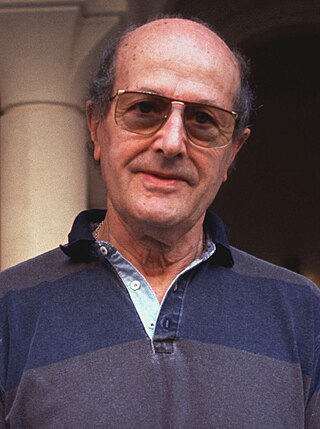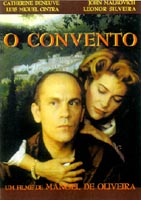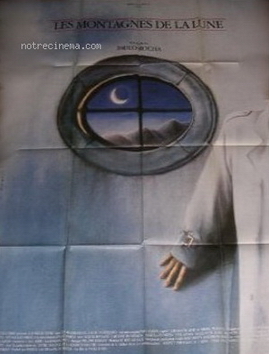Related Research Articles

Manoel Cândido Pinto de Oliveira was a Portuguese film director and screenwriter born in Cedofeita, Porto. He first began making films in 1927, when he and some friends attempted to make a film about World War I. In 1931, he completed his first film Douro, Faina Fluvial, a documentary about his home city Porto made in the city-symphony genre. He made his feature film debut in 1942 with Aniki-Bóbó and continued to make shorts and documentaries for the next 30 years, gaining a minimal amount of recognition without being considered a major world film director.

The Cinema of Portugal started with the birth of the medium in the late 19th century. Cinema was introduced in Portugal in 1896 with the screening of foreign films and the first Portuguese film was Saída do Pessoal Operário da Fábrica Confiança, made in the same year. The first movie theater opened in 1904 and the first scripted Portuguese film was O Rapto de Uma Actriz (1907). The first all-talking sound film, A Severa, was made in 1931. Starting in 1933, with A Canção de Lisboa, the Golden Age would last the next two decades, with films such as O Pátio das Cantigas (1942) and A Menina da Rádio (1944). Aniki-Bóbó (1942), Manoel de Oliveira's first feature film, marked a milestone, with a realist style predating Italian neorealism by a few years. In the 1950s the industry stagnated. The early 1960s saw the birth of the Cinema Novo movement, showing realism in film, in the vein of Italian neorealism and the French New Wave, with films like Dom Roberto (1962) and Os Verdes Anos (1963). The movement became particularly relevant after the Carnation Revolution of 1974. In 1989, João César Monteiro's Recordações da Casa Amarela won the Silver Lion at the Venice Film Festival and in 2009, João Salaviza's Arena won the Short Film Palme d'Or at the Cannes Film Festival. Several other Portuguese films have been in competition for major film awards like the Palme d'Or and the Golden Bear. João Sete Sete (2006) was the first Portuguese animated feature film. Portuguese cinema is significantly supported by the State, with the government's Instituto do Cinema e do Audiovisual giving films financial support.

Itabirito is a municipality in the Minas Gerais state of Brazil. Its population is estimated to have 52,446 people in 2020. The city belongs to the mesoregion Metropolitan of Belo Horizonte and to the microregion of Ouro Preto.
Aniki-Bóbó is a 1942 Portuguese film directed by Manoel de Oliveira. It is his first feature-length film. The actors are mostly children from Oliveira's hometown, Porto. The script was adapted by Manoel de Oliveira from a short story by José Rodrigues de Freitas, Meninos Milionários. 'Aniki-Bóbó' is a rhyme from a children's game, akin to Eeny, meeny, miny, moe.

The Convent is a 1995 film by Portuguese director Manoel de Oliveira, starring Catherine Deneuve and John Malkovich and is inspired by an original idea by Agustina Bessa-Luís in her novel As terras do risco. It was entered into the main competition of the 1995 Cannes Film Festival.
Brandos Costumes (1974) is a Portuguese film directed by Alberto Seixas Santos which was a part of the Novo Cinema movement – influenced by the cinematographic neo-realism and specially by the Nouvelle Vague. It was released in 1975, when the political regime portrayed in the film had already been destroyed.

Fort of São João, also known as Fort of Biscoitinho, is a medieval fort, in the civil parish of São Mateus da Calheta, in the municipality of Angra do Heroísmo, on the Portuguese archipelago of the Azores.

Catarina Cardoso Garcia da Fonseca Furtado is a Portuguese television presenter, actress and UNFPA Goodwill Ambassador. Catarina was born in Lisbon and is a daughter of RTP journalist Joaquim Furtado.
The Artist and the City is a 1956 short Portuguese documentary film directed by Manoel de Oliveira. The film shows a series of watercolor paintings by Portuguese artist António Cruz of what he sees while walking through different parts of the city of Porto. It was the first color film directed by Oliveira. Oliveira considers it forms a trilogy about the Douro and Porto, with Douro, Faina Fluvial and Aniki-Bóbó

Gebo and the Shadow is a 2012 Portuguese-French drama film directed by Manoel de Oliveira. It is based on a play by Raul Brandão. It was shown at the 69th Venice International Film Festival. The film received a 100% rating on Rotten Tomatoes.
Christopher Columbus – The Enigma is a 2007 Portuguese film directed by Manoel de Oliveira. It was filmed in both Portugal and the United States. It was screened out of competition at the 64th edition of the Venice Film Festival.
Magic Mirror is a 2005 Portuguese film directed by Manoel de Oliveira. It was shown in competition at the 2005 Venice Film Festival. It is based on a novel by Agustina Bessa-Luís. The film was conceived as the second part of a trilogy that begun with the 2002 film The Uncertainty Principle.
The Fifth Empire is a 2004 Portuguese film directed by Manoel de Oliveira. It is one of the various film adaptations of plays by José Régio that Oliveira directed.
Day of Despair is a 1992 Portuguese drama film based on the life of Portuguese writer Camilo Castelo Branco. It was directed by Manoel de Oliveira. The film was selected as the Portuguese entry for the Best Foreign Language Film at the 65th Academy Awards, but was not accepted as a nominee.
My Case is a 1986 Portuguese drama- fantasy film directed by Manoel de Oliveira. It entered the main competition at the 43rd Venice International Film Festival. The film is based on the play of the same name by José Régio, but also on the Book of Job as well as texts by Samuel Beckett.
The Hunt is a 1963 short Portuguese film directed by Manoel de Oliveira. The film is a grim, surrealistic short narrative film that contrasted with the positive tones of Oliveira's previous film. Due to censorship issues, Oliveira was forced to add a "happy ending" to the initial release of the film and was unable to restore his original ending until 1988. Because of this film and anti- Salazar regime comments Oliveira made after a screening of his previous film O Acto de Primavera, he was arrested by the PIDE in 1963. He spent 10 days in jail and was interrogated until finally being released with the help of his friend Manuel Meneres.

Fernando Vendrell is a Portuguese film director and producer.

O Desejado is a 1987 Portuguese-French drama film written and directed by Paulo Rocha and starring Luís Miguel Cintra.
Idegarda Oliveira was an Angolan singer and composer also known as Hildegarda Oliveira or Garda. She was the first Angolan to record a vinyl record released in her home country: 1958's Maria Candimba.
References
- ↑ "O Passado e o Presente - Filmes". cinemaportuguesmemoriale.pt. Retrieved 2023-06-13.
- ↑ "Manoel de Oliveira's Tetralogy of Frustrated Love". Film at Lincoln Center. Retrieved 2023-06-13.